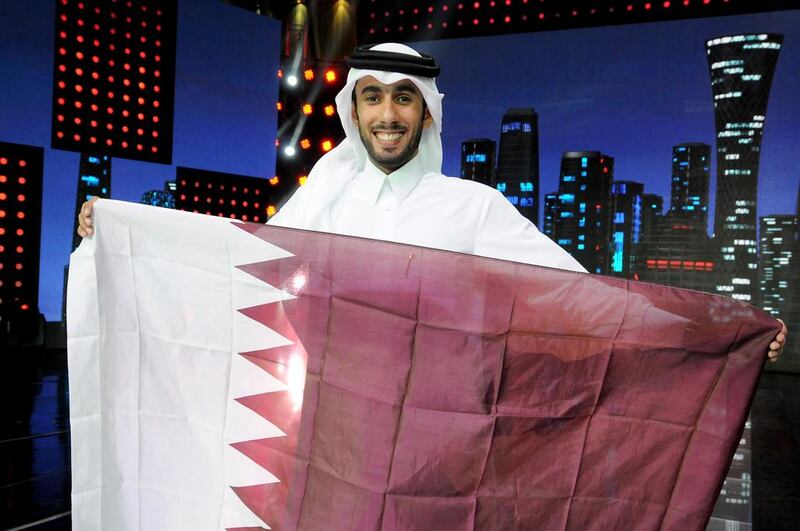The show
Finally a chance to watch a pan-Arab talent show without singing and dancing. For nearly five years, MBC4's Stars of Science has wowed and inspired audiences, as would-be inventors battle it out to see their ideas become a reality. After nearly 6,000 aspirants attended auditions in Dubai, Qatar, Kuwait, Morocco and Jordan, only 16 contestants have been chosen to convert their concept into an eventual prototype.
The format
As is typical of any competition, the contestants have to overcome a variety of challenges and win the approval of the formidable judging panel, which includes local, VIP and university jurors in addition to two permanent judges. The first round will whittle the 16 candidates down to 10 as the judges examine each concept to ascertain its legitimacy.
Six contestants will survive the next cut after the judges are satisfied with the early engineering work of the concept. The design round will see another contestant fall, with the panel deeming the product not exciting enough to hit the shelves.
After proving the marketability of their products, four contestants will reach the final on November 8, where they will plug their finished prototypes before the judges and a live television audience. The final rankings are decided with the voting divided between the judges and the live television audience. Prizes range from US$300,000 (Dh1.1m) for the winner to $50,000 (Dh183,645) for the fourth place.
The new guy
Season five will have a new, second permanent judge, Youssif Al Salhi. Currently the general manager of Qatar Shell Research and Technology Centre, the Qatari is set to bring his extensive technical and marketing know-how to the programme.
Al Salhi explains his excitement in working with the next batch of young Arab talent. "This is really an amazing show," he says. "I think what makes the programme stand out is the fact that we actually want to get the best out of all the contestants. We try to support them in the best way we can in that we provide experts from different fields to give them advice." Al Salhi explains he is more a nurturer than his tough-as-nails fellow judge Dr Fouad Mrad.
"I am looking forward to working with the contestants and see what great ideas they have," says Al Salhi. "I want to encourage them as this is really what the show is about."
The ice man
He is the academic-turned-unlikely television star. Dr Mrad has been striking fear and determination into the contestants' hearts with his terse observations and intimidating tirades against sloppy work.
Presently an executive director with the United Nations Economic and Social Commission for Western Asia, Dr Mrad has led international teams in addition to holding his former academic post as a professor of electrical and computer engineering at the American University of Beirut.
Dr Mrad credits his academic tenure for his direct approach. "I have been teaching as a professor for 17 years and I find a lot of value in that," he says.
"I am tough when it comes to assessments but I give it my all when it comes to support and learning. My former students know this and understand what I am trying to do on television. They know I was there for them all the time."
Reclaiming the past
While the programme is forward-thinking in its content, Dr Mrad explains the spirit of innovation throughout the series is something the Arab world has always possessed. "If innovation is defined as bringing value from a good idea, then Arabs have always been innovators; it's in our genes," he says.
"We had cycles that saw innovation move from the sciences to trade and then there were times it headed towards religion and then leadership, philosophies and the arts. I am just hoping now that we can refocus that talent towards sciences and technology and produce things that would bring great value economically."
. Stars of Science is broadcast weekly on MBC4 on Fridays starting tomorrow at 9pm. It will move to daily episodes on October 5
Last year's winner Khalid Aboujassoum
Since winning the competition last year, Khalid Aboujassoum became a millionaire in less than a week but lost his social life.
That is the price you pay when chasing your dream, explains the 27-year-old.
After being the first Qatari to win Stars of Science, Aboujassoum pumped nearly all of the prize money back into his winning invention Tahi, an automated cooking pot that can mix different ingredients (placed inside its containers) in addition to possessing a computer memory able to store records of previously cooked meals.
"It has definitely been non-stop and I haven't seen a lot of my friends since then," he laughs.
"Winning the competition is the beginning of the journey and I feel like I still have a long way to go."
Aboujassoum recently returned from America's Silicon Valley, where he held talks with Google, Apple and Facebook to seek advice on how to push Tahi to prospective consumers.
On the home front, he has been a regular visitor in Qatari schools, sharing his story and involving himself in local educational initiatives. "This to me is the best part of the journey," he says. "I do feel like I have a role to play in giving back to the community. Winning Stars of Science is indeed an honour, but it has now become a responsibility to help others to reach their dreams as well."
sasaeed@thenational.ae






